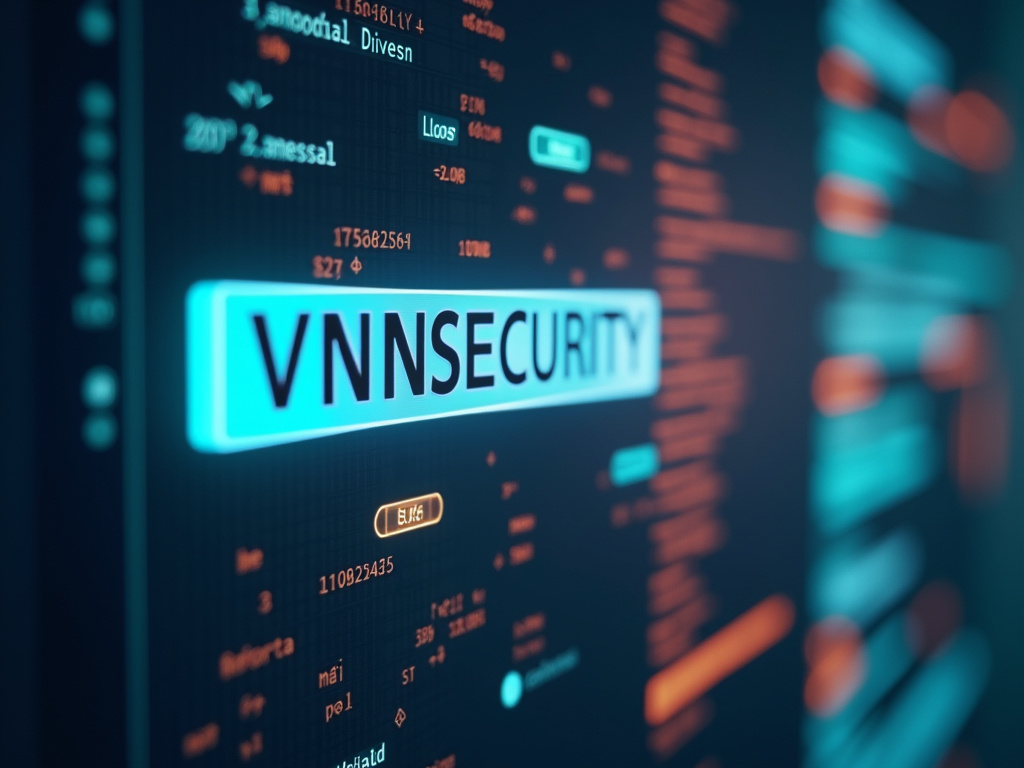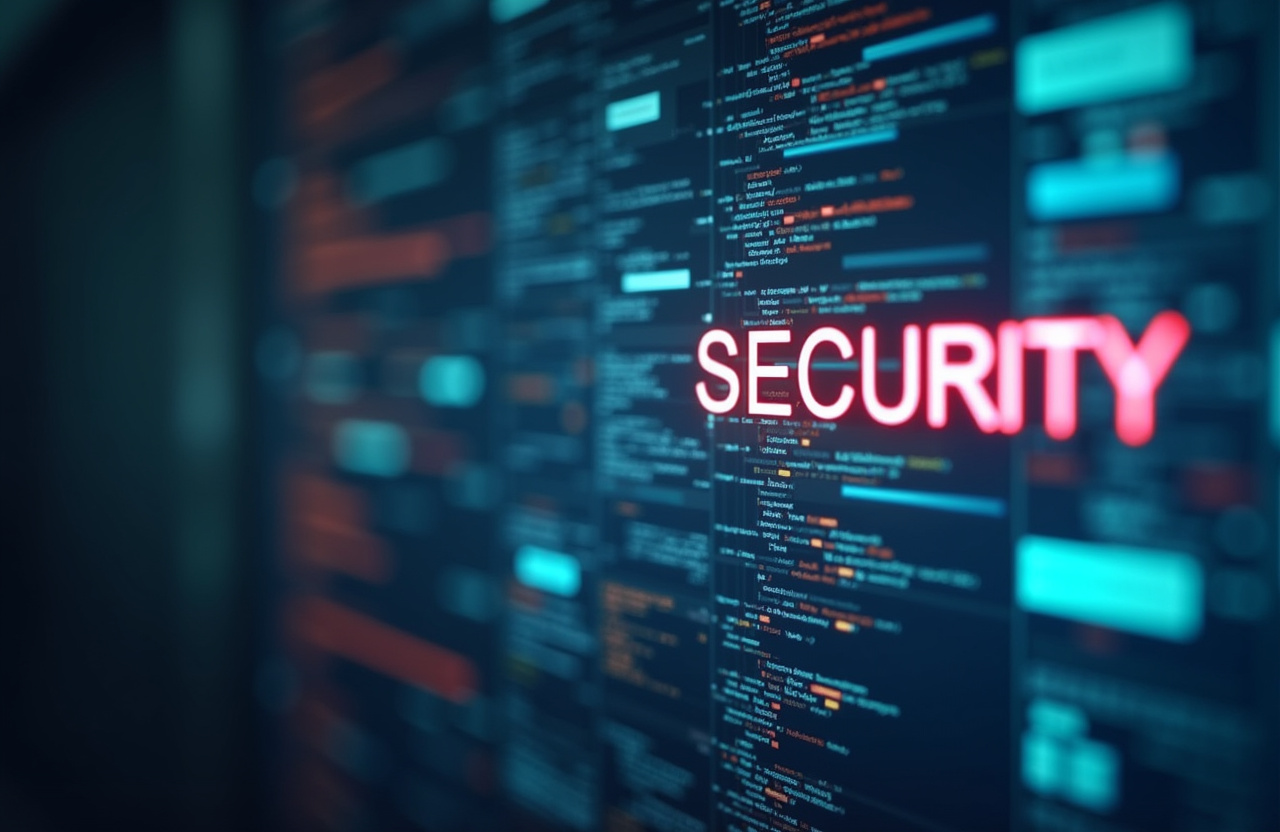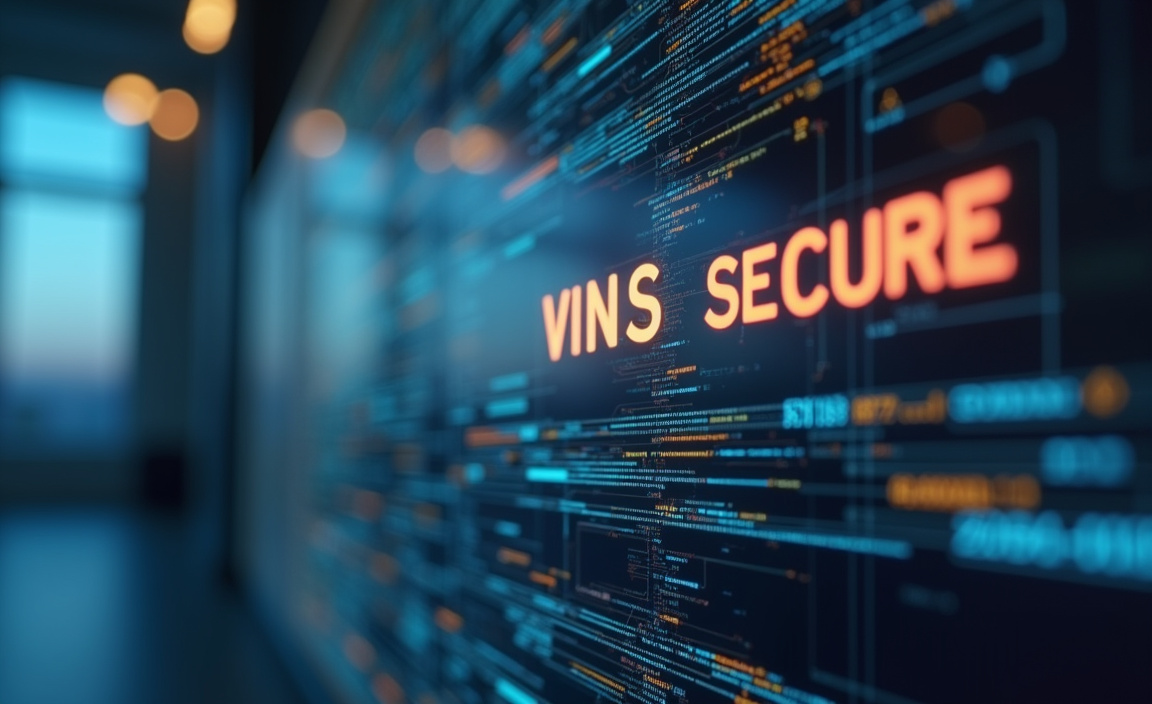VPNs for Corporate Training: Ensuring Secure Learning Environments

Table of Contents
VPNs for Corporate Training: Ensuring Secure Learning Environments
In an era defined by rapid technological advancements and an increasingly interconnected global workforce, continuous learning and development have become indispensable pillars of organizational success. Corporate training programs, once confined to traditional classroom settings, have undergone a dramatic transformation, embracing online platforms, interactive digital modules, and immersive virtual workshops. This paradigm shift towards digital learning has opened doors to unprecedented accessibility, cost-effectiveness, and personalized learning experiences, enabling organizations to upskill and reskill their employees at scale.
However, this digital evolution has also introduced a new set of challenges, particularly in safeguarding the security and confidentiality of sensitive training data and cultivating secure learning environments that foster trust and encourage open collaboration. As organizations increasingly rely on online platforms to deliver corporate training, the implementation of robust security measures becomes paramount to mitigate potential risks such as data breaches, unauthorized access, intellectual property theft, and compliance violations. Among the array of security solutions available, Virtual Private Networks (VPNs) have emerged as essential tools for creating secure, reliable, and private learning environments for corporate training programs.
A corporate training VPN functions as a sophisticated digital shield, encrypting data transmitted between the learner's device and the training server, thereby safeguarding sensitive information from potential eavesdroppers, malicious actors, and unauthorized access attempts. This encryption process essentially scrambles the data, rendering it unreadable to anyone who does not possess the correct decryption key. By establishing a secure and encrypted connection, a VPN ensures the confidentiality and integrity of training materials, employee data, and other proprietary information, preventing sensitive data from falling into the wrong hands.
The adoption of VPNs in corporate training programs directly addresses the growing need for enhanced security measures and the protection of valuable organizational assets. In today's threat landscape, cyberattacks are becoming increasingly sophisticated, and organizations must prioritize the security of their online training platforms to maintain a competitive edge, protect their reputation, and foster a culture of trust and confidentiality among their employees. A well-implemented VPN solution demonstrates a commitment to data security and privacy, reassuring employees that their personal information and learning progress will be protected.
This article delves into the significance of VPNs in corporate training, highlighting their multifaceted benefits in creating secure learning environments, protecting training data from unauthorized access and breaches, and ensuring the confidentiality of sensitive information shared during training sessions. We will explore the various aspects of VPN implementation, including the different types of VPNs suitable for corporate training programs, best practices for VPN configuration and ongoing maintenance, and the potential challenges associated with their deployment. Furthermore, we will examine the critical role of VPNs in helping organizations comply with stringent data privacy regulations, such as the General Data Protection Regulation (GDPR) and the California Consumer Privacy Act (CCPA), and their overall contribution to building a robust and resilient security posture for organizations operating in today's complex digital landscape.
By gaining a comprehensive understanding of the importance of VPNs in corporate training, organizations can effectively leverage these powerful tools to create secure, reliable, and engaging learning experiences for their employees, ultimately leading to improved performance, enhanced innovation, and sustainable growth. The strategic use of a VPN for businesses represents a fundamental step towards protecting sensitive information and fostering a secure and productive learning environment in the digital age. It's an investment in both security and the future of the workforce.
The Need for Secure Learning Environments in Corporate Training: As corporate training programs increasingly migrate to online platforms, the potential for security breaches and data compromises grows exponentially. This shift, while offering unparalleled convenience and scalability, introduces vulnerabilities that can expose sensitive information to a myriad of threats. Sensitive training materials, encompassing proprietary methodologies, confidential business strategies, and intellectual property, employee data, including personal information, performance records, and training progress, and proprietary information, such as financial data, trade secrets, and customer lists, are all vulnerable to cyber threats if adequate security measures are not in place.
A data breach in the context of corporate training can have devastating consequences for an organization, extending far beyond mere financial losses. Reputational damage can erode customer trust and brand loyalty, potentially leading to significant revenue decline. Legal liabilities, stemming from violations of data privacy regulations, can result in hefty fines and protracted legal battles.
Moreover, the loss of competitive advantage, due to the theft of trade secrets or proprietary training methodologies, can cripple an organization's ability to innovate and compete effectively in the marketplace. Furthermore, the unauthorized access or disclosure of confidential training materials can severely undermine the integrity of the training program and diminish its overall effectiveness. If competitors gain access to proprietary training content, they can replicate the organization's strategies and gain an unfair advantage.
The need for secure learning environments is further amplified by the increasing prevalence of remote work and the rise of distributed teams. Employees accessing corporate training programs from diverse geographical locations and utilizing a wide array of devices introduce new complexities in ensuring data security and maintaining the confidentiality of sensitive information. When employees connect to training platforms via public Wi-Fi networks, often found in coffee shops, airports, and hotels, or unsecured home networks, they become particularly susceptible to man-in-the-middle attacks, where hackers intercept data transmitted between the user and the server, eavesdropping, allowing malicious actors to monitor online activity and steal sensitive information, and other sophisticated cyber threats.
These inherent risks underscore the critical importance of implementing VPNs to create secure and encrypted connections for remote employees accessing corporate training resources, thereby mitigating the potential for data breaches and unauthorized access. In addition to external threats originating from outside the organization, companies must also be keenly aware of and proactively address internal risks to data security and confidentiality. Insider threats, stemming from employees with malicious intent, such as disgruntled workers seeking to sabotage the organization, or negligent behavior, such as employees inadvertently exposing sensitive data due to a lack of security awareness, can also significantly compromise sensitive training data.
Mitigating these internal risks requires a multi-faceted approach. Implementing strict access controls, limiting employee access to only the data and systems they need to perform their job duties, actively monitoring user activity for suspicious behavior, and enforcing robust data loss prevention (DLP) policies, preventing sensitive data from leaving the organization's control, can significantly reduce the likelihood of insider threats. However, corporate training VPNs play a crucial and complementary role in enhancing internal security.
They achieve this by encrypting data transmitted within the organization's internal network, thereby limiting the potential damage that can be inflicted by a malicious insider, and strictly controlling access to sensitive resources, ensuring that only authorized personnel can access confidential training materials and employee data. Furthermore, adherence to data privacy regulations, including the General Data Protection Regulation (GDPR), which governs the handling of personal data of individuals within the European Union, and the California Consumer Privacy Act (CCPA), which grants California residents significant rights over their personal data, mandates that organizations implement appropriate security measures to protect personal data from unauthorized access, disclosure, and misuse. Corporate Training VPNs are invaluable in assisting organizations to meet these stringent compliance requirements.
By encrypting data both in transit and at rest, VPNs ensure that only authorized individuals have legitimate access to sensitive information, thereby demonstrating a strong commitment to data privacy and fostering trust with both employees and customers.
How VPNs Enhance Security in Corporate Training: A corporate training VPN provides a multi-layered and comprehensive approach to enhancing overall security within corporate training programs. At its core, a VPN creates a secure and encrypted tunnel between the individual user's device, whether it be a laptop, tablet, or smartphone, and the corporate training server, which could be located on-premises or hosted in the cloud. This encrypted tunnel effectively protects all data transmitted between the two points from potential interception, unauthorized access, or malicious modification.
This robust encryption process ensures the confidentiality of sensitive training materials, safeguarding employee data, and protecting other forms of proprietary information. Even in the unlikely event that a determined hacker manages to intercept the data being transmitted, they would be unable to decipher its contents or extract any meaningful information without possessing the correct encryption key, which is held securely by the VPN server. This level of protection is crucial in preventing data breaches and maintaining the integrity of the training program.
One of the primary and most significant benefits of implementing corporate training VPNs is their ability to secure remote access to critical training resources. As organizations increasingly embrace remote work arrangements and distributed teams, employees often need to access training programs from various locations, including their homes, while traveling for business, or from other remote locations. Connecting to the corporate network via a secure VPN connection creates an encrypted and protected pathway, effectively shielding sensitive data from potential threats.
This safeguard prevents unauthorized access to sensitive data and provides a strong defense against cyber threats that may be present on public Wi-Fi networks, which are notoriously insecure, or unsecured home networks, which may lack adequate firewall protection. By forcing all remote connections to traverse a secure VPN tunnel, organizations can significantly reduce their attack surface and minimize the risk of data breaches. Furthermore, corporate training VPNs play a vital role in training data protection, ensuring that all training-related data remains secure and confidential throughout its entire lifecycle.
By implementing strong encryption at the source of the data transmission, typically the user's device, and decrypting it only at the intended destination, generally the training server, VPNs ensure that data remains confidential and protected throughout its journey across the network. This level of protection is particularly important when training data is stored in the cloud or on other remote servers, where it may be more vulnerable to unauthorized access. By encrypting the data while it is in transit and at rest, VPNs help protect against a wide range of potential threats, including data breaches, unauthorized access attempts, and outright data theft.
In addition to the fundamental benefit of data encryption, many VPN solutions offer a range of other valuable security features that further enhance the overall security posture of corporate training programs. Many sophisticated VPNs integrate robust, built-in firewalls which actively block malicious traffic and actively prevent unauthorized access to the corporate network and its valuable training resources. These integrated firewalls can be configured to filter traffic based on a variety of factors, including source and destination IP addresses, port numbers, and protocols, effectively preventing malicious actors from gaining access to sensitive data.
Furthermore, corporate training VPNs can be seamlessly configured to enforce multi-factor authentication (MFA), requiring users to provide multiple forms of identification, such as a password and a one-time code sent to their mobile device, before they are granted access to training resources. This added layer of security can prevent unauthorized access, even if a hacker manages to obtain a user's password.
Confidentiality and Data Privacy Compliance: Ensuring the confidentiality of training materials and employee data is a paramount concern for organizations, not only to protect their intellectual property and maintain a competitive edge but also to comply with increasingly stringent data privacy regulations. A corporate training VPN plays a critical role in upholding confidentiality by encrypting all data transmitted during training sessions, thereby preventing unauthorized access and disclosure of sensitive information. This encryption extends to a wide range of data, including training content, employee performance data, assessment results, and any other confidential information shared during the training process.
By encrypting this data, the VPN ensures that only authorized individuals can access and interpret it, effectively safeguarding confidentiality. Moreover, VPNs can be configured to restrict access to specific training resources based on user roles and permissions, further limiting the potential for unauthorized access and disclosure. This granular access control ensures that only employees who have a legitimate need to access certain training materials are granted permission, preventing employees from accessing information that is not relevant to their job functions.
In addition to upholding confidentiality, a corporate training VPN is essential for complying with various data privacy regulations, such as the General Data Protection Regulation (GDPR) and the California Consumer Privacy Act (CCPA). These regulations mandate that organizations implement appropriate security measures to protect personal data from unauthorized access, disclosure, and misuse. Failure to comply with these regulations can result in significant fines and reputational damage.
A VPN can help organizations meet these compliance requirements by encrypting data in transit, preventing unauthorized access to personal data during transmission, and providing a secure connection for accessing and processing personal data. The GDPR, in particular, imposes strict requirements on organizations regarding the processing of personal data of individuals within the European Union. Organizations must implement appropriate technical and organizational measures to ensure the security of personal data, including encryption.
A VPN fulfills this requirement by encrypting data transmitted during training sessions, protecting it from unauthorized access and disclosure. Furthermore, the GDPR requires organizations to notify individuals of any data breaches that may compromise their personal data. By implementing a VPN and other security measures, organizations can reduce the risk of data breaches and minimize the potential for harm to individuals.
The CCPA grants California residents significant rights over their personal data, including the right to access, delete, and opt-out of the sale of their personal data. Organizations must comply with these requirements by implementing appropriate security measures to protect personal data and providing individuals with clear and transparent information about how their data is collected, used, and shared. A corporate training VPN can assist organizations in meeting these CCPA requirements by encrypting data in transit and ensuring that only authorized individuals can access personal data.
Beyond the specific requirements of GDPR and CCPA, a corporate training VPN also demonstrates an organization's commitment to data privacy and builds trust with employees and customers. By implementing robust security measures, organizations can reassure employees that their personal data and training progress will be protected from unauthorized access and misuse. This trust is essential for fostering a positive learning environment and encouraging employees to actively participate in training programs.
Furthermore, demonstrating a commitment to data privacy can enhance an organization's reputation and attract customers who value data security and privacy. In today's data-driven world, consumers are increasingly concerned about the security of their personal data, and organizations that prioritize data privacy are more likely to gain their trust and loyalty. By implementing a corporate training VPN, organizations can demonstrate their commitment to data privacy and build a strong foundation for long-term success.
Implementation and Best Practices for Corporate Training VPNs: Successfully implementing a corporate training VPN requires careful planning, configuration, and ongoing maintenance. Organizations must consider several factors to ensure that the VPN effectively enhances security, protects data, and complies with relevant regulations. One of the first decisions is choosing the appropriate type of VPN.
Several VPN protocols are available, each with its own strengths and weaknesses. Common options include IPSec (Internet Protocol Security), which is widely used for creating secure site-to-site VPNs and remote access VPNs; SSL/TLS VPNs (Secure Sockets Layer/Transport Layer Security), which are commonly used for web-based applications and remote access; and WireGuard, a relatively new protocol known for its speed and security. The selection of the VPN protocol should be based on the organization's specific security requirements, performance needs, and compatibility with existing infrastructure.
Once the VPN protocol is selected, organizations must carefully configure the VPN server and client software. This includes setting up strong encryption algorithms, configuring authentication methods, and defining access control policies. Strong encryption algorithms, such as AES (Advanced Encryption Standard), are essential for protecting data from unauthorized access.
Authentication methods, such as multi-factor authentication (MFA), add an extra layer of security by requiring users to provide multiple forms of identification. Access control policies define which users have access to specific training resources, further limiting the potential for unauthorized access and disclosure. In addition to configuring the VPN server and client software, organizations must also establish clear policies and procedures for VPN usage.
These policies should outline the responsibilities of employees accessing training resources via the VPN, including requirements for password security, device security, and data handling. Employees should be trained on these policies and procedures to ensure that they understand their obligations and are aware of the security risks associated with VPN usage. Regular security awareness training can help employees identify and avoid phishing scams, malware attacks, and other threats that could compromise the security of the VPN.
Ongoing monitoring and maintenance are essential for ensuring the continued effectiveness of a corporate training VPN. Organizations should regularly monitor VPN logs for suspicious activity, such as unauthorized access attempts or unusual traffic patterns. These logs can provide valuable insights into potential security threats and help organizations respond quickly to any incidents.
Furthermore, organizations should regularly update the VPN server and client software with the latest security patches to address any vulnerabilities that may be discovered. Software updates often include critical security fixes that can protect against newly emerging threats. Failing to apply these updates promptly can leave the VPN vulnerable to attack.
Regularly auditing the VPN configuration and security policies is also crucial. Security audits can help identify any weaknesses in the VPN setup and ensure that it is configured according to best practices. These audits should be conducted by qualified security professionals who can provide independent assessments and recommendations.
Another critical best practice is to integrate the corporate training VPN with other security measures, such as firewalls, intrusion detection systems, and data loss prevention (DLP) solutions. This layered security approach provides a comprehensive defense against a wide range of threats. Firewalls can block unauthorized traffic from entering the network, while intrusion detection systems can detect and alert on suspicious activity.
DLP solutions can prevent sensitive data from leaving the organization's control, even if a VPN connection is compromised. Finally, organizations should regularly evaluate the effectiveness of their corporate training VPN and make adjustments as needed. This includes assessing the performance of the VPN, reviewing security logs, and gathering feedback from employees.
By continuously monitoring and improving the VPN implementation, organizations can ensure that it remains an effective tool for enhancing security, protecting data, and complying with relevant regulations. The implementation of a corporate training VPN is an ongoing process that requires a commitment to continuous improvement and a proactive approach to security.
Stay Updated
Get the latest VPN news, tips, and exclusive deals to your inbox.




